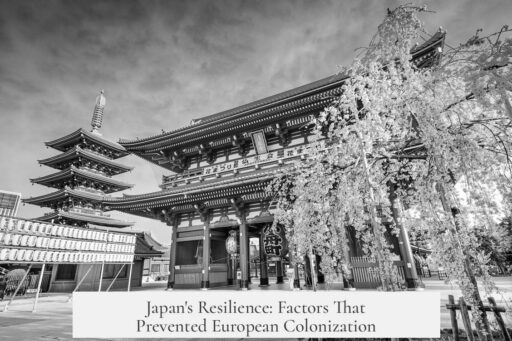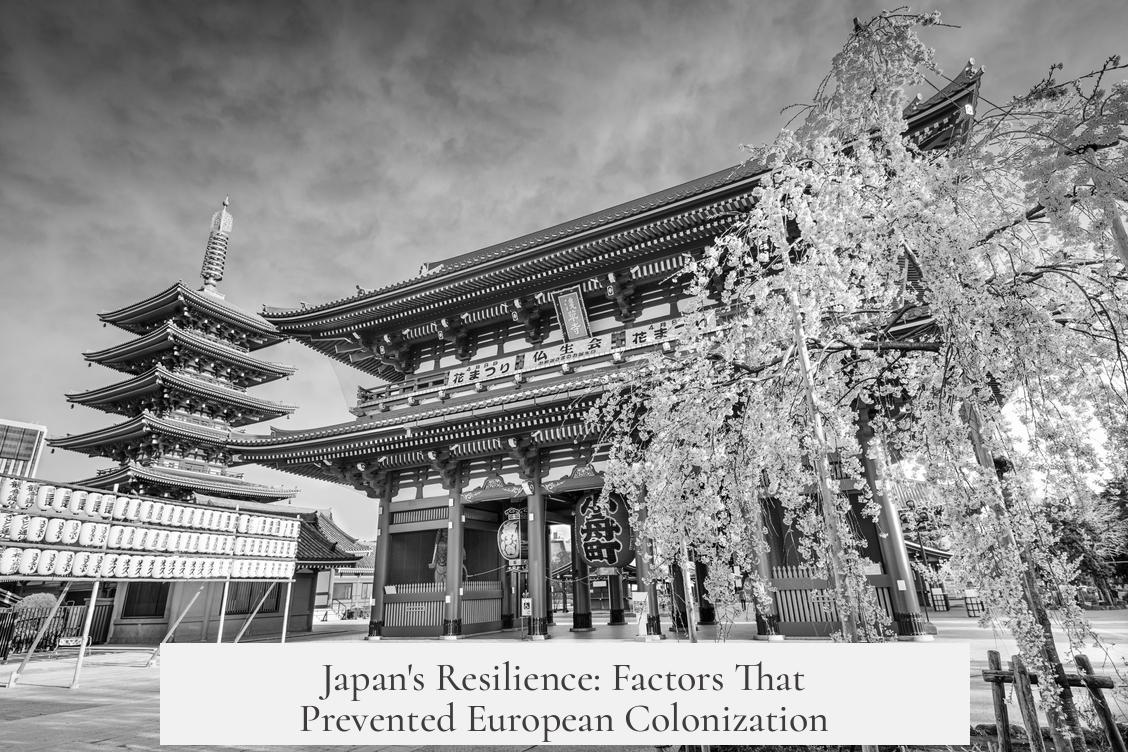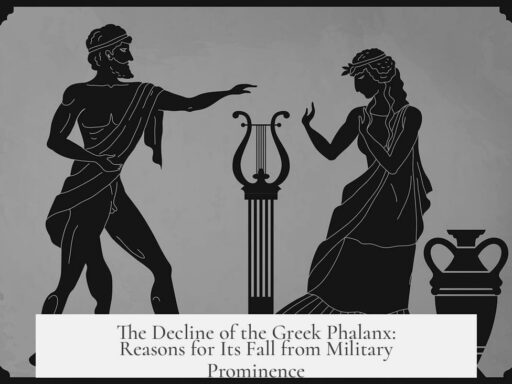Japan avoided colonization by European powers due to a combination of strong internal governance, astute foreign policy, limited colonial appeal, and strategic modernization efforts. This multifaceted response started in the 16th century and continued through the 19th century, preventing the patterns seen elsewhere in Asia and Africa.
Early European contact began with Jesuit missionaries in the 1500s. These missionaries introduced Christianity and opened trade pathways that some Japanese feudal lords exploited for local power struggles. However, Japanese leaders quickly recognized the disruptive potential of unchecked foreign influence. Toyotomi Hideyoshi, who consolidated power by the 1580s, banned Christianity in 1587 and imposed strict controls on maritime trade. This decisive action halted European foothold expansion and contrasted sharply with other regions like the Kingdom of Kongo or Java, where European powers gained control via internal divisions.
Japan’s awareness of global dynamics was considerable despite its later-reputed “closed country” (sakoku) period. Cities like Nagasaki, founded by Portuguese Jesuits with local approval, became hubs resembling other Portuguese colonies such as Macau and Goa. The Dutch maintained trade posts, relocating from Hirado to the artificial island of Dejima in Nagasaki, facilitating controlled interaction until the Meiji Restoration. These examples show a pragmatic approach: Japan allowed limited trade and contact under strict regulation, avoiding complete domination.
Economic factors also reduced Japan’s colonization appeal. It lacked abundant natural resources attractive to European powers at the time. Colonizing Japan would require significant military effort and resource allocation. European nations found greater incentives in Africa and the Indian subcontinent, which offered rich resources and closer logistics. Maritime distances presented formidable challenges in maintaining supply lines and troop reinforcements, dissuading large-scale invasions.
Japan’s internal strength contributed greatly to resisting colonization. Despite technological gaps compared to Europe, centralized authority enabled mobilization of vast human resources and military discipline. By the late Sengoku period, Japanese warriors had developed armor resistant to European firearms like the arquebus. Their military tactics, battle experience, and unity potential—such as forming coalitions during external threats—strengthened defense capabilities. Historical examples include resistance against Mongol invasions in the 13th century, demonstrating a tradition of repelling foreigners.
The Meiji Restoration (1868) marked a turning point. Japan rapidly modernized its military and institutions by adopting western technology and expertise. Instead of permitting colonization, Japan hired Europeans and Americans as advisors, effectively shifting from potential victim to rising power. This reform came just as Western powers, distracted by conflicts like the American Civil War and Franco-Prussian War, lost focus on Japan. Britain’s support for the emergent Meiji government also helped Japan avoid subjugation during its political transition.
Japan’s encounter with European powers also involved “unequal treaties,” which imposed extraterritoriality and tariff restrictions favoring western merchants. While these treaties represented economic subservience, they differed from direct colonization. Japan responded with “defensive imperialism” or “mimetic imperialism,” adopting and adapting Western military and political models to resist foreign domination. Japan pursued imperial expansion in Asia, controlling regions like Taiwan and Korea, thus becoming an imperial power rather than a colony.
| Key Factors Preventing Japanese Colonization |
|---|
| Strong centralized leadership enforcing bans on Christianity and trade controls (Toyotomi Hideyoshi) |
| Selective engagement with European traders and missionaries (Nagasaki and Dutch trading post) |
| Limited natural resources reducing colonial incentives |
| High logistical challenges deterring European military invasions |
| Well-trained military and historical ability to repel invasions |
| Rapid modernization during Meiji Restoration with western military expertise |
| Strategic geopolitical timing and support from Britain |
| Adoption of defensive/mimetic imperialism to maintain sovereignty |
- Early decisive regulation contained European influence and halted missionary expansion.
- Japan’s controlled trade relations avoided full colonial status.
- Geopolitical distractions of Western powers limited focus on Japan.
- The Meiji Restoration’s modernization transformed Japan into an imperial power itself.
- Japan’s defensive imperialism enabled resistance to indirect colonization.
Why Was Japan Not Colonized by European Powers?
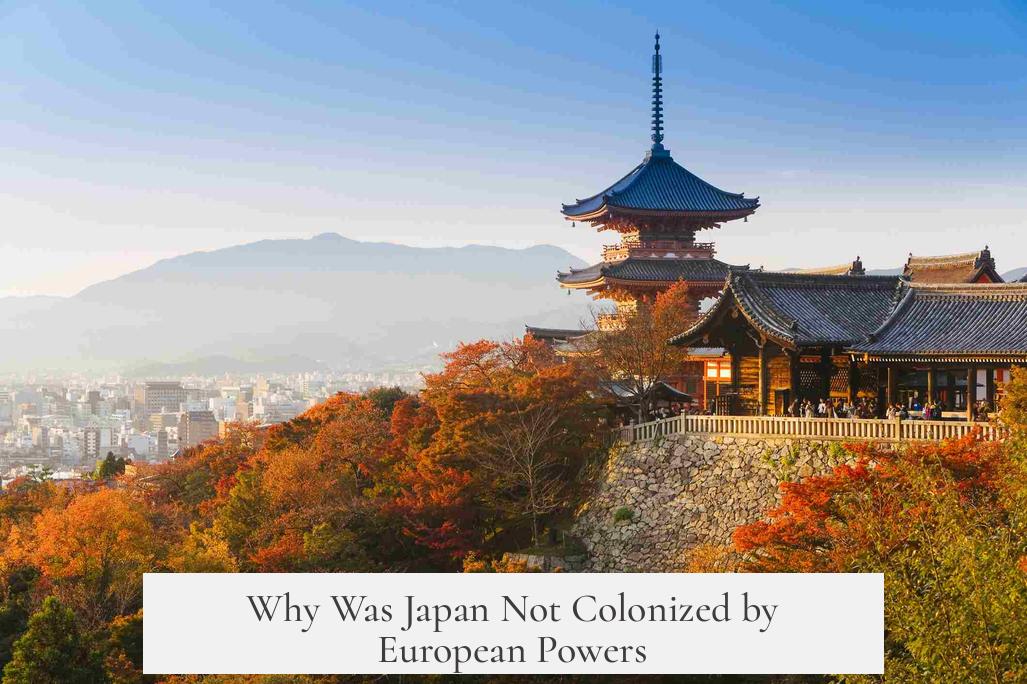
Simply put, Japan was never colonized by European powers because it combined early strategic resistance, economic pragmatism, strong internal structures, and timely modern reforms—making colonization costly, complicated, and ultimately unnecessary for Europeans. Let’s unravel the fascinating story behind this unique historical outcome.
Japan’s brush with European colonialism began in the 16th century. Jesuit missionaries arrived, representing the first wave of European influence. Their mission was religious, but their presence opened a backdoor to colonial footholds. Feudal lords used the Europeans’ goods and weapons to outmaneuver rivals. It looked like European colonization might gain a strong grip as seen elsewhere in Africa or Asia.
But enter Toyotomi Hideyoshi, a savvy leader who smelled trouble. By the 1580s, he took charge of Japan’s main islands and swiftly banned Christianity in 1587. This wasn’t just a religious crackdown—it sent a clear message: external influence would be tightly controlled.
By regulating sea trade and clamping down on unregulated foreign influence, Hideyoshi built a firewall that cut the Europeans off from easy conquest. Unlike the Kingdom of Kongo in Africa or Java, where European presence fragmented local power, Japan stayed largely united.
Think about Nagasaki, founded by Portuguese Jesuit priests with local approval. It was like a mini European colony in Asia—operating much like Macau or Goa. Yet, even that foothold was limited and eventually ousted by Tokugawa Ieyasu’s son, shifting power firmly back to Japanese hands. Meanwhile, the Dutch maintained a trading post in Hirado, later moving it to the artificial island of Dejima in Nagasaki harbor, holding on until the Meiji Restoration.
Economic and Strategic Realities
Why didn’t European powers push harder for control? The answer starts with economics and logistics.
Japan’s natural resources were scarce compared to the bountiful riches found in Africa and India. Europeans, always chasing gold, spices, and resources, looked elsewhere. Establishing colonies required vast resources—armies, ships, and supplies all had to cross thousands of miles of ocean. This was expensive, slow, and risky.
Trade was a far more rewarding strategy. Europeans thrived on friendly commercial relationships with Japan. They gained access to unique goods like silver and silverware without the political headaches of direct control.
Winning a colony might have seemed exciting in theory, but the marginal benefits weren’t enough to justify the effort. Why risk lives and resources for a challenging conquest far from home, when closer regions offered richer loot and easier control?
Japan’s Internal Strength and Adaptability
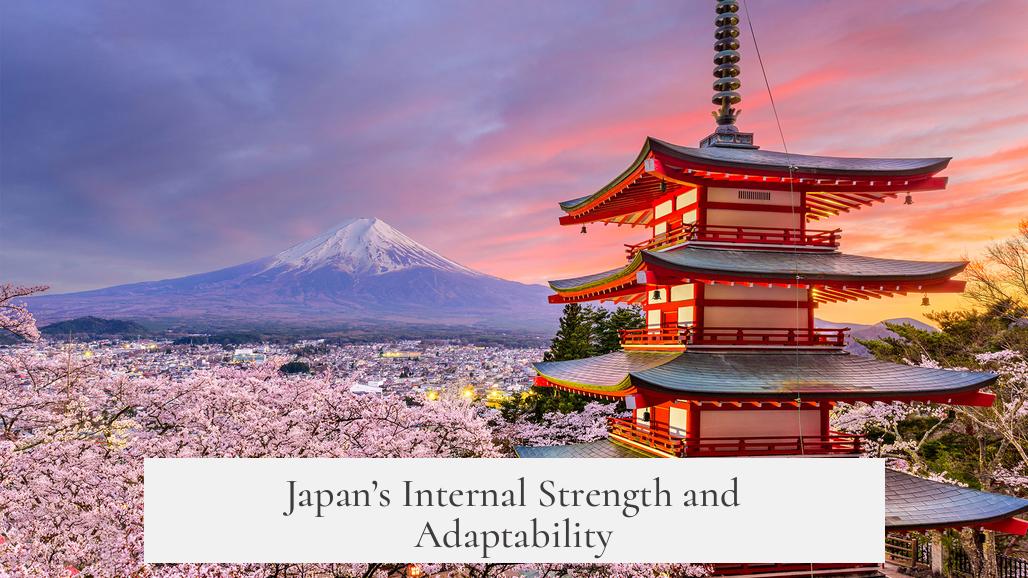
China and Japan both had centralized authorities capable of mobilizing massive manpower, unlike many fragmented African or Southeast Asian states. This power centralized Japan’s defense mechanisms.
Military prowess was high. By the end of the Sengoku Jidai (1467–early 17th century), Japanese warriors equipped their armor to withstand arquebus fire. After decades of internal warfare, Japan’s military leaders refined tactics at a level comparable to European armies.
Even if an invasion happened during internal strife, Japanese history shows they united against foreign threats—as they did against the Mongol invasions in 1274 and 1281.
Fast forward to the Meiji Restoration of 1868. Japan flipped the script by aggressively modernizing. Instead of succumbing to colonialism, Japan hired European and American experts to develop its own army and state infrastructure. It built a modern military and state to stand toe-to-toe with Western powers.
This effective modernization came just as the U.S. was occupied with Reconstruction after the Civil War, and European powers were distracted by conflicts like the Franco-Prussian War. Britain’s support of the new Japanese government was a pivotal external factor too.
Timing Made All the Difference
Have you ever thought about how global distractions shape history? The timing of European focus played a key role.
When Commodore Perry arrived in the 1850s, Japan opened up trade, sparking competition among France, Britain, and the U.S. However, the American Civil War and a decline in Manifest Destiny shifted U.S. interests inward.
Simultaneously, France’s defeat in the Franco-Prussian War weakened its ability to project influence in East Asia. Britain, the strongest naval power then, chose to back Japan’s new government rather than join old coalitions. These circumstances gave Japan the chance to fortify itself without a direct colonial takeover.
Indirect Colonization: A Hidden Story
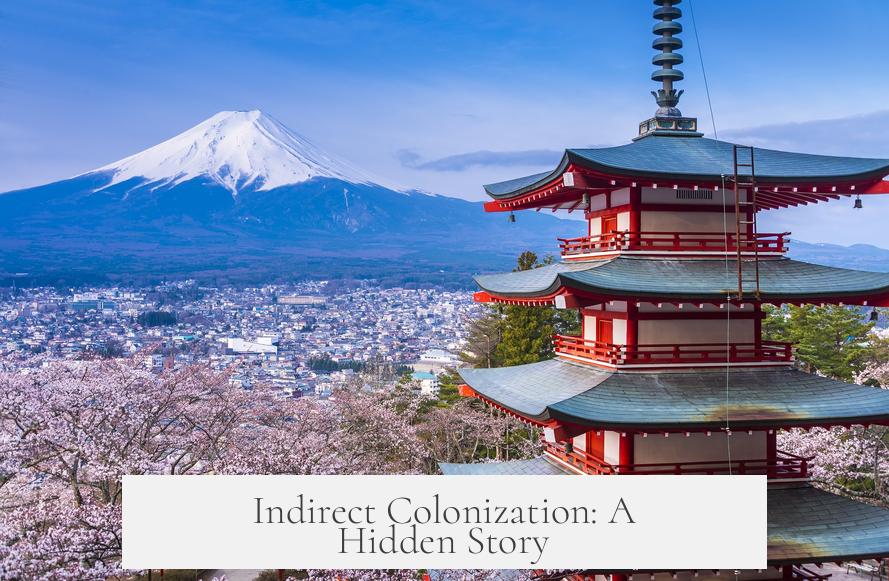
Japan’s story isn’t simply “no colonialism happened.” Instead, it experienced indirect colonization in a subtler form.
Unequal Treaties forced Japan into economic subservience after the end of its sakoku period (national isolation). These treaties gave Western powers tariff controls favoring their merchants and imposed extraterritoriality—meaning foreigners were immune to Japanese law.
This economic manipulation is a hallmark of colonial pressure. Japan lived under gunboat diplomacy, with Western powers demanding privileges under threat of force.
Yet, Japan didn’t fold. It chose “defensive imperialism”—embracing selective Westernization and imperial expansion itself. This mimesis (copying Western imperial models) allowed Japan to avoid colonization by becoming an imperial power, akin to a chess player using a borrowed move to escape checkmate.
For example, the 1874 Taiwan expedition showed Japan’s intent to project power beyond its shores, signaling it was more than a passive victim of imperialism.
Takeaways and Lessons
- Control over foreign influence matters. Toyotomi Hideyoshi’s early ban on Christianity and trade regulation was a masterstroke to keep outsiders at bay.
- Strong centralized power and military readiness are crucial. Japan’s ability to mobilize manpower and modernize prevented easy conquest.
- Economic pragmatism beats colonial dreams. Europeans preferred trading partners over difficult-to-conquer colonies with fewer resources.
- Timing is everything in history. Global distractions shaped European ambitions, giving Japan space to reform and resist.
- Indirect control can be as invasive as direct colonization. Japan’s experience with unequal treaties reveals the complexity of imperial power dynamics.
- Selective adaptation and modernization can safeguard sovereignty. Japan’s welcoming of Western expertise without surrendering autonomy set a precedent.
Imagine if Japan had not banned Christianity early on or let the Portuguese and Dutch establish broader colonies. Would it have fallen under imperial control like so many other Asian or African nations? Possibly. But Japan’s leaders played a long game—realizing that adopting some Western tools while fiercely guarding sovereignty was the path to survival.
In the end, Japan rewrote the playbook on resisting European colonization. It wasn’t by luck but by deliberate policies, smart modernization, economic savvy, and well-timed international support. It’s a tale of vision and power that turned the tide in a world racing toward empire.
Curious what other nations almost got colonized but managed to dodge the bullet? Or wondering how defensive imperialism works in other parts of the world?
History offers many tales where timing, strength, and strategy spell the difference between subjugation and sovereignty. Japan’s story stands out as an extraordinary example of a nation not just surviving but thriving amid global pressures.
